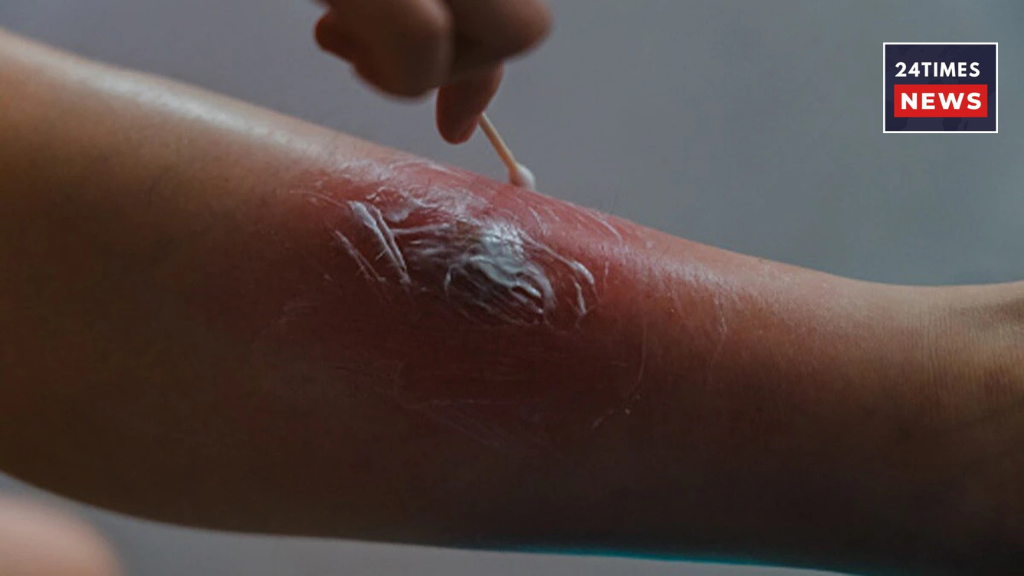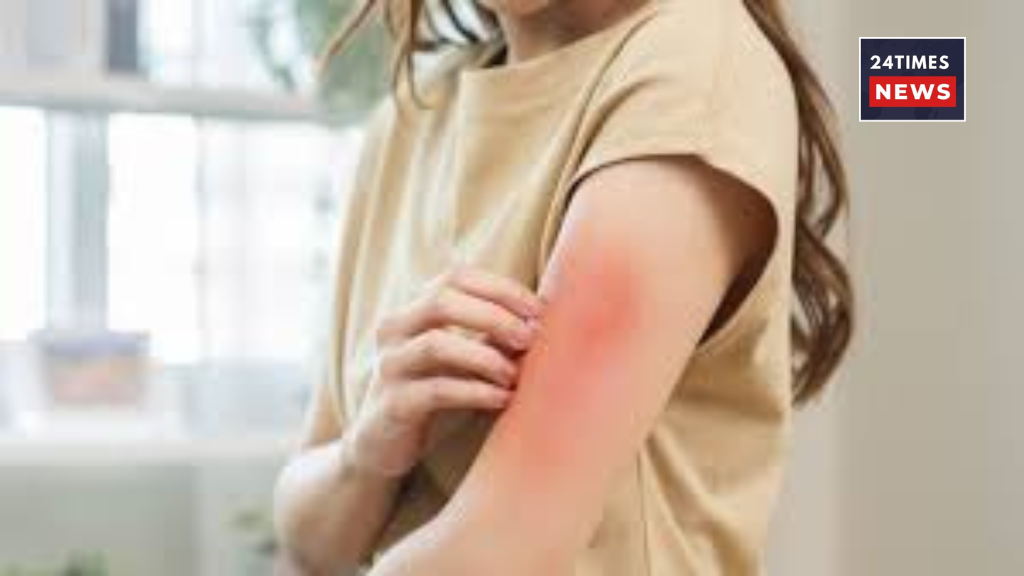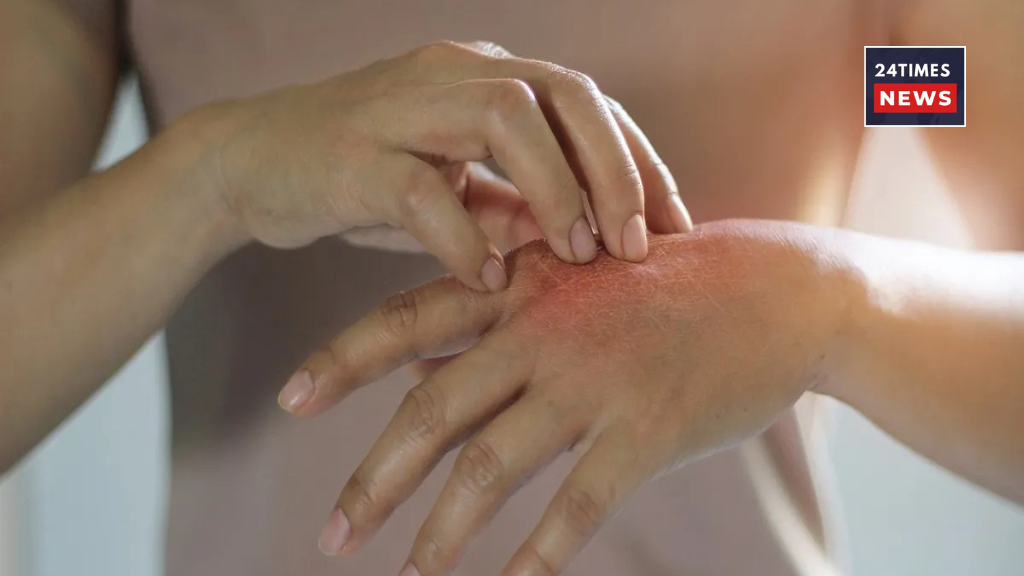Monsoon Skin Alert
The monsoon season often triggers a sharp rise in skin-related problems. In Bhopal, the capital of Madhya Pradesh, patient numbers at JP Hospital and Hamidia Hospital have increased more than tenfold in recent days. Currently, 100–150 people visit doctors daily for bacterial and fungal infections, compared to just 10–12 patients earlier. The main reason is the high humidity, which creates a perfect environment for conditions like ringworm, scabies, itching, and other skin issues.
Why Skin Infections Rise in Monsoon
The rainy season brings excess moisture and dampness, which promotes the growth of bacteria and fungi. This leads to problems such as rashes, boils, pimples, itching, and body odor, making skin infections more common.

Prevention Tips
- Keep your skin dry and clean at all times.
- Shower daily and thoroughly dry your body afterward.
- Wear light, breathable cotton clothes.
- Avoid staying in sweaty or wet clothes for long.
- Adopt simple hygiene habits to reduce infection risk.
- Bacterial vs. Fungal Infections
Moisture makes both bacterial and fungal infections spread faster, but their symptoms differ. Many people confuse the two, which delays proper treatment. Early diagnosis is key to effective recovery.
Can Fungal Infections Spread?
Yes. According to dermatologist Dr. Sheena Kapoor, fungal infections are contagious and can spread through contact. Sharing clothes, bedsheets, shoes, towels, or personal items with an infected person increases the risk. Doctors strongly advise against sharing hygiene products in such cases.

Caution with Talc and Deodorants
Excessive use of talcum powder and deodorants during monsoon can harm the skin. Chemicals in deodorants may worsen irritation, acne, or itching. While talcum powder absorbs sweat, using it heavily can dry out the skin and make it more sensitive. It’s best to use these products sparingly.
When to See a Doctor
Seek medical help immediately if you notice pain, blisters, scaly patches, red spots, or persistent itching. Avoid self-medicating with over-the-counter steroid creams, as they may worsen infections. Timely consultation with a doctor ensures faster and safer recovery.





